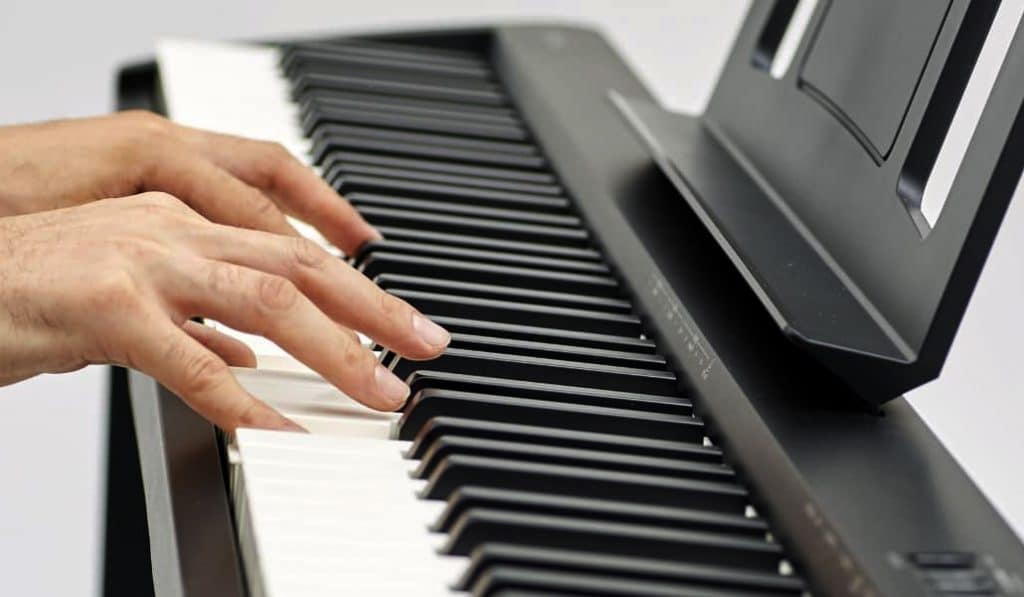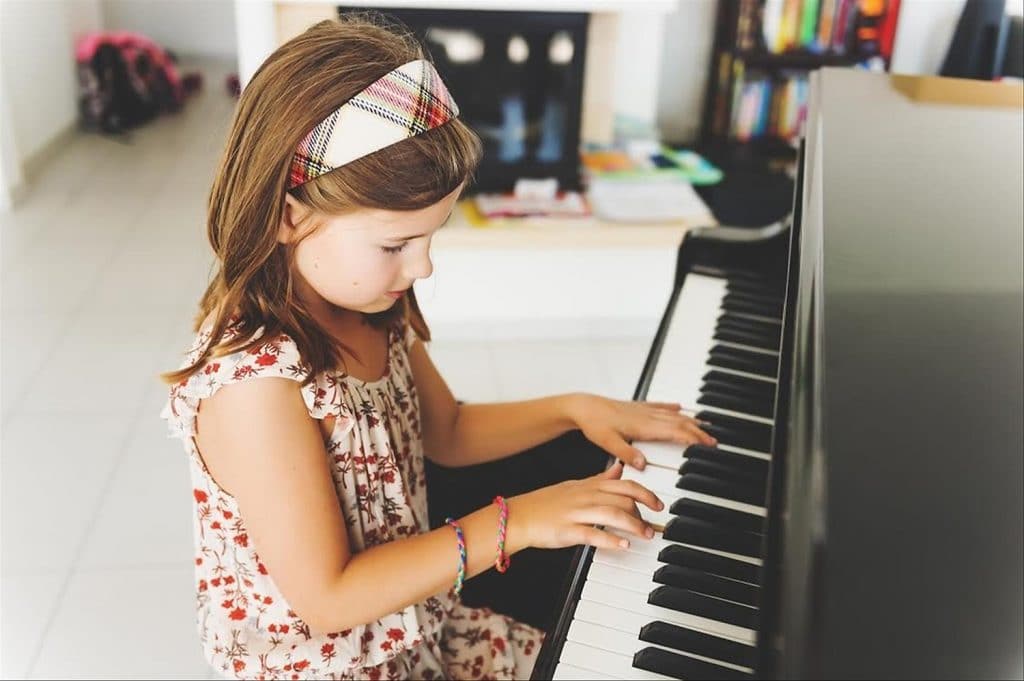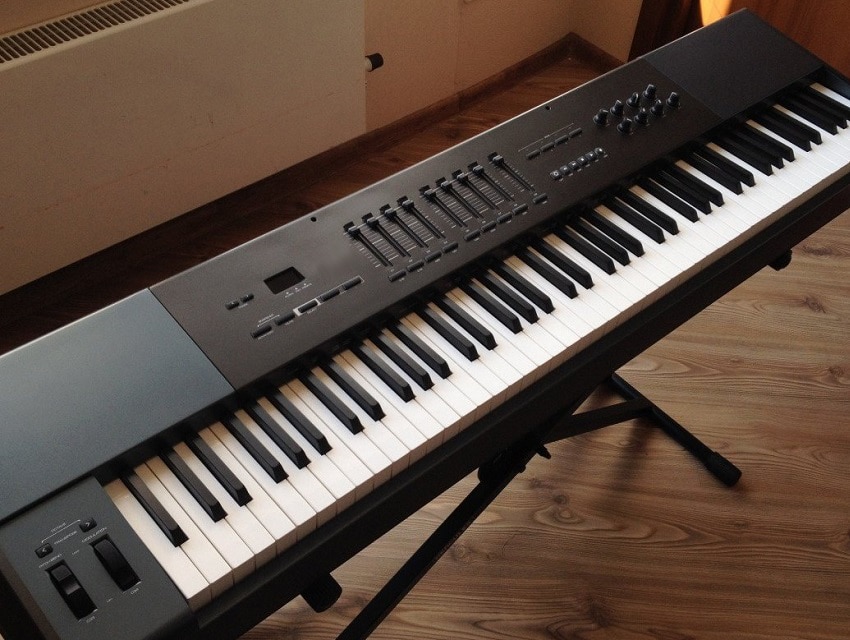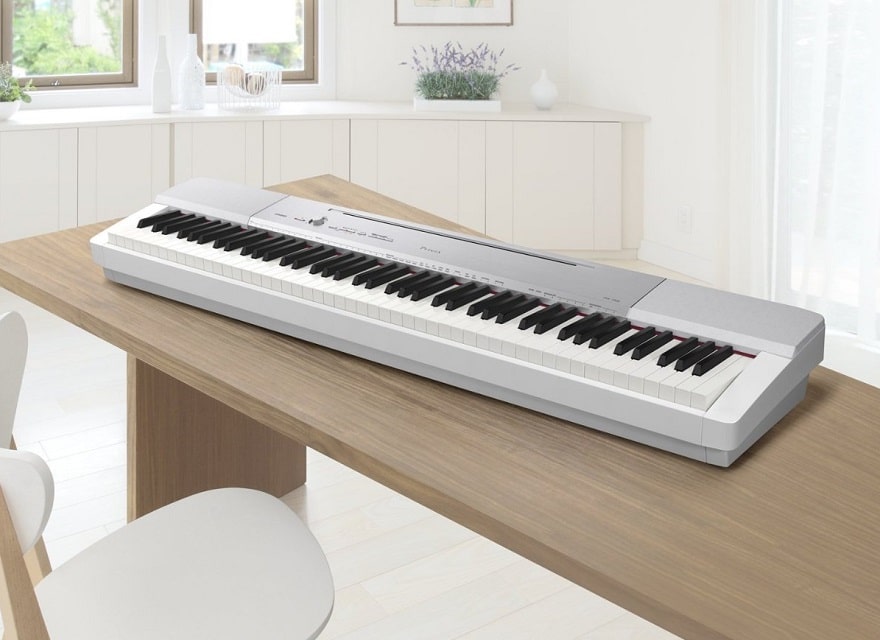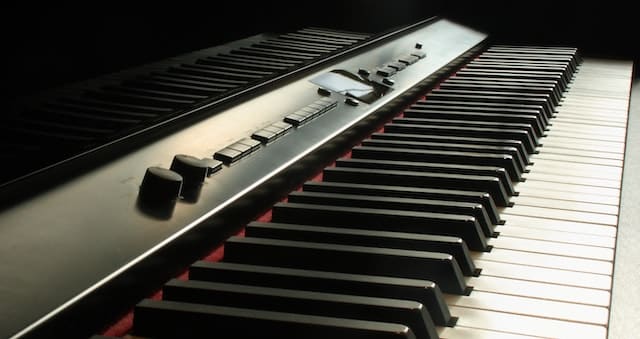Features to consider while choosing keyboard with weighted keys
To make sure you get value for money for the unique way you’ll be using your 88 key keyboard, learn more about all the different features of these innovative products. With this knowledge you can vet yourself which of our models will bring you the most pleasure in years to come? Will it be the Alesis Recital Pro or the Yamaha P45? Read on and shop like a pro.
Type of keys
The type of keys your 88 key keyboard is one of the most important aspects of your shopping process. It will be one of the following and each one performs differently in terms of feel. This has a huge impact on the kind of sound you’re able to generate. After all, you’ll only give your best performances if you feel comfortable playing.
Non-Weighted
The other name for this type is ‘synth’ keyboards. You can easily distinguish these from most other keyboards because the keys are often thin and rounded compared to the blocked look of traditional piano keys and more weighted keys that we’ll discuss below.
You get a springy movement of the keys thanks to a spring-loaded device. When your band needs synth background music or you’re creating backtracks where you need to transition fast between notes, this make for easy playing and great audio.
Semi-weighted
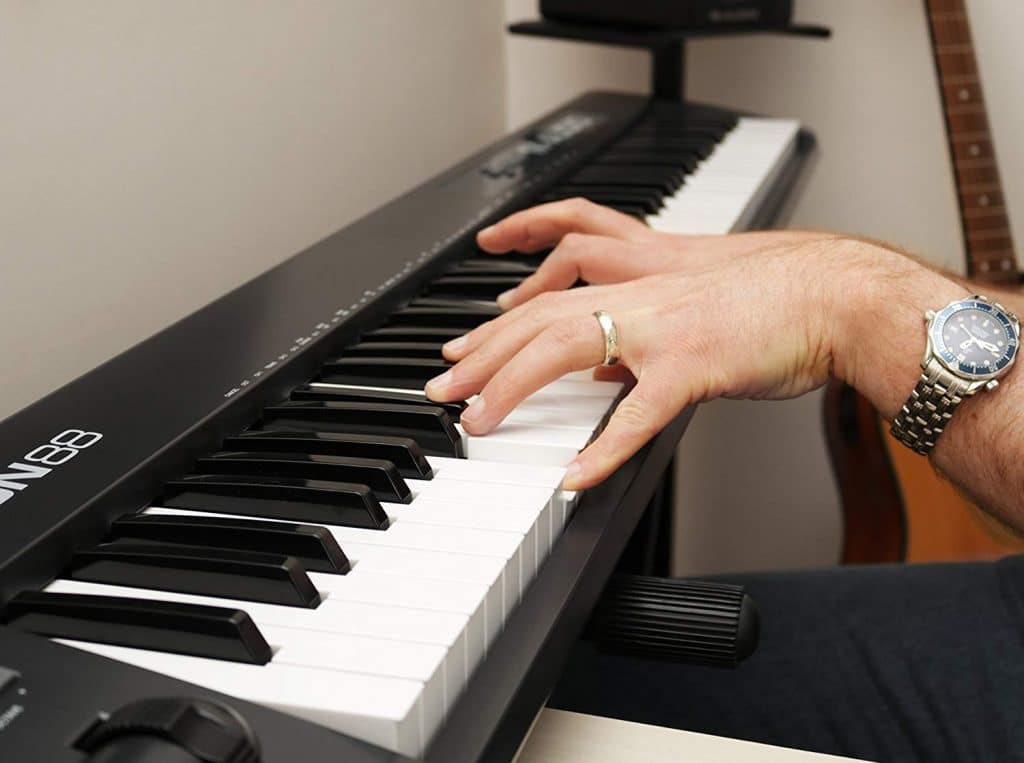 With this type of key you’ll have more control than what you’ll get from synth keyboards. The improved resistance also leads to a better, more realistic (piano-like) playing experience, although there’s still a lot of room for improvement. This is achieved by brands adding more weights or changing the design of the spring. The keys take longer to return to their original positions then.
With this type of key you’ll have more control than what you’ll get from synth keyboards. The improved resistance also leads to a better, more realistic (piano-like) playing experience, although there’s still a lot of room for improvement. This is achieved by brands adding more weights or changing the design of the spring. The keys take longer to return to their original positions then.
There’s a market for these models because not everyone needs the weighted feel of a piano. But if you know you’ll play on a piano sooner or later, it’s best not to forget everything about how it feels, right? That’s when you try this type, and an example can be seen in the M Audio Keystation 88 II on our list.
Hammer action
This type is also called fully weighted and a weighted 88 key keyboard like the Alesis Recital Pro is what you’ll need if you want an experience close to playing on a traditional piano. Brands not only create keys that follow the actions of a piano’s components, but in some models they’ll even feel similar to the real thing.
The effect is thanks to a combination of small components: a hammer beneath the key ensures there’s the feel of the mechanical movement synonymous with acoustic pianos.
High end keyboards of this kind will often also have longer keys to provide the player with a larger surface to move his or her fingers on.
If you don’t play piano yet, but know you one day want to invest in a real one, this is the keyboard you need to practice on.
Grand Hammer Standard
You can enjoy an even more realistic playing experience if you have graded hammer or ‘progressive hammer action’ keys. In this case your lower notes will require a heavier touch to be played and higher notes exhibit a lighter touch. This simulates how it feels to play a traditional acoustic piano.
Some brands will even manufacture keys from wood rather than synthetic materials to further simulate the feeling of playing an acoustic instrument.
Number of polyphony (Max.)
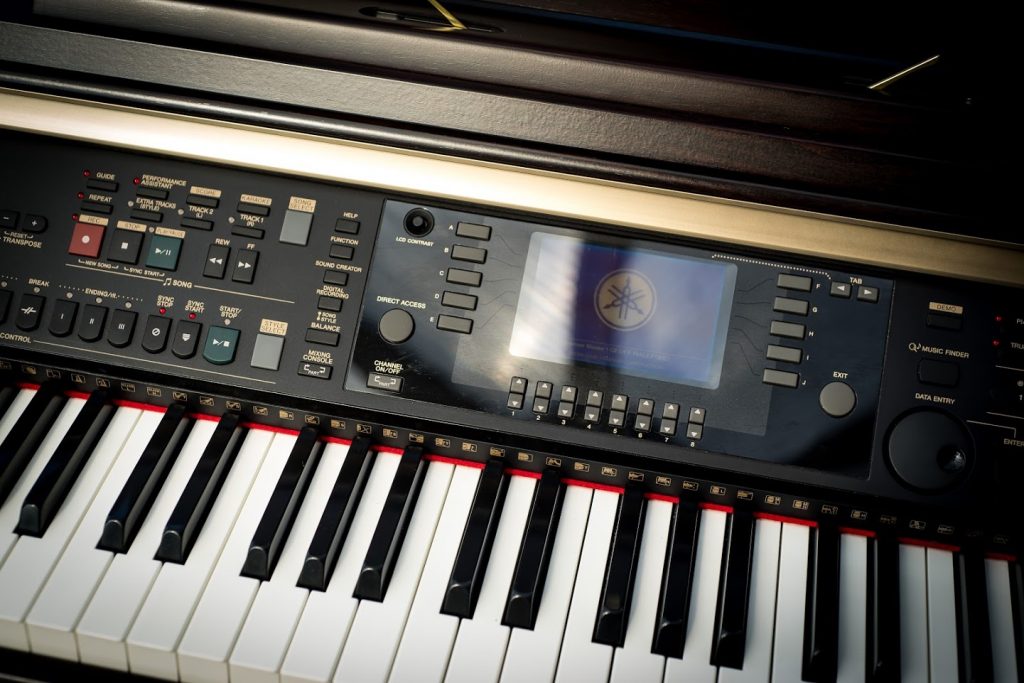 The quality of the audio you produce via your 88 key keyboard will relate closely to polyphony of the instrument. A big word that simply refers to how many tones—or notes—your instrument can bring across at the same time. The more the better of course. Lower end models may produce 32, while 64, such as the ONE Smart keyboard featured above, is acceptable in many scenarios. For the pros that are particular about their sound production there are units that deliver 128 or 264 note polyphony.
The quality of the audio you produce via your 88 key keyboard will relate closely to polyphony of the instrument. A big word that simply refers to how many tones—or notes—your instrument can bring across at the same time. The more the better of course. Lower end models may produce 32, while 64, such as the ONE Smart keyboard featured above, is acceptable in many scenarios. For the pros that are particular about their sound production there are units that deliver 128 or 264 note polyphony.
Sound Presets
Sound presets are often selling points and they do add value to the instrument. Having multiple instrument sounds to pick from enables you to do more with your keyboard. But will you use all the odd sounds the brands incorporate in many models? This may include practical sounds like drum mimicking, but also ‘funny’ sounds including a helicopter sound or something that sounds like a person screaming.
Even when shopping for an 88 key keyboard for beginners you may think having sounds is a primary consideration. Let’s be honest: it’s fun to play around with interesting preset sounds. But it won’t be entertaining forever and not everyone uses them on stage. So, don’t make this your number one priority.
If the available sounds help you to create instrumental backing tracks or if a sound on reverb enhances your song, it does serve you well in the long run.
Think about what you’ll use your keyboard for and see whether it’s necessary to have all those sounds.
Interface
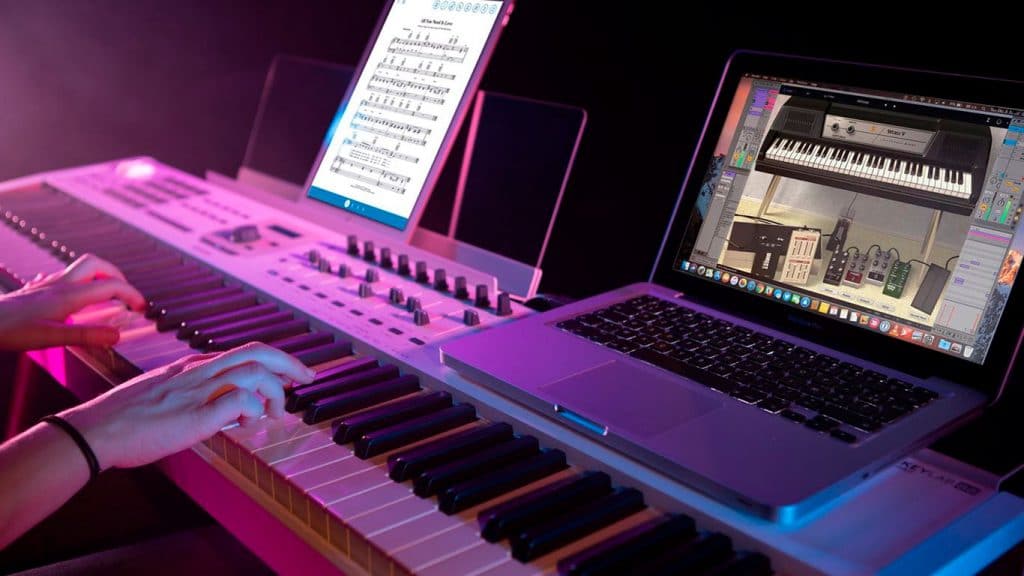 You don’t want the learning curve with your new keyboard to be too long. That can happen if it’s too complicated. That makes the best buy 88 key keyboard one that has an intuitive interface that you’ll quickly grasp, like is The ONE Smart Keyboard.
You don’t want the learning curve with your new keyboard to be too long. That can happen if it’s too complicated. That makes the best buy 88 key keyboard one that has an intuitive interface that you’ll quickly grasp, like is The ONE Smart Keyboard.
You can have interfaces for general functioning, but also for DAW and virtual instrument controls. Make sure you get user friendly layouts for all the functions you know you’ll use a lot.
Consider the layout of the keyboard’s buttons and determine if they’re easy to use: if they’re placed too close to each other it may be difficult to make changes mid play. An LCD screen that allows you to see which selection you made also helps during a performance: you’ll know exactly what you picked, so no false notes or wrong sounds.





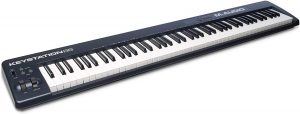
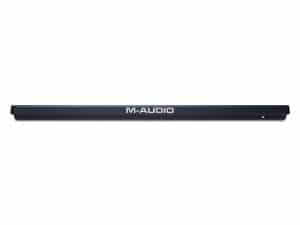
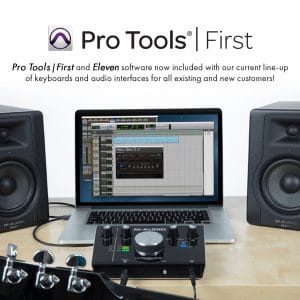
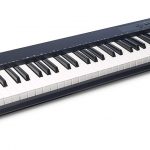
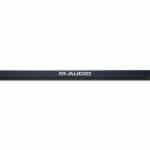
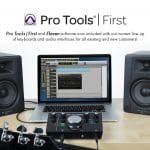


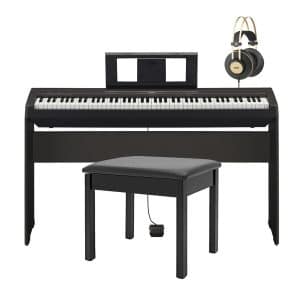
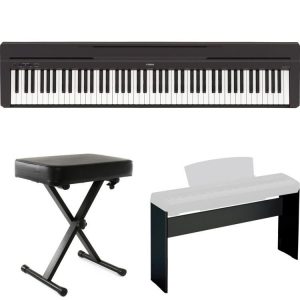
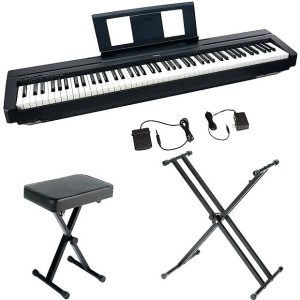
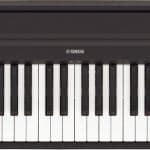
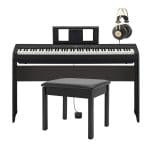
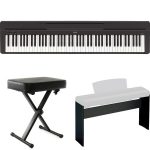
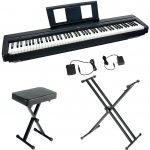
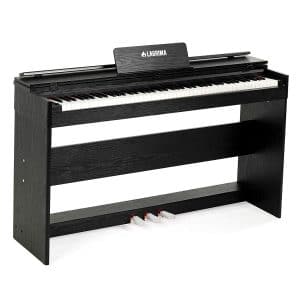
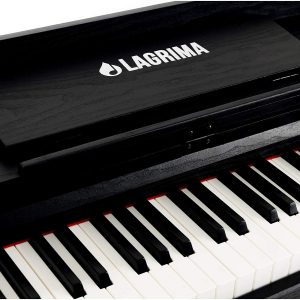
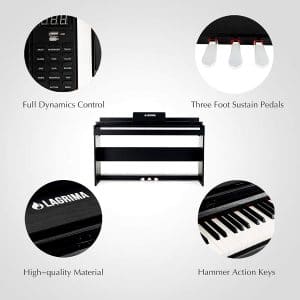
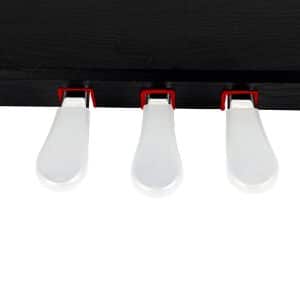
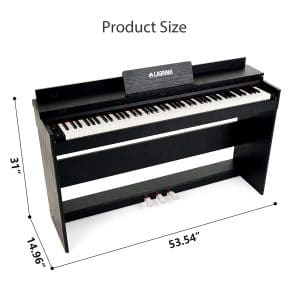
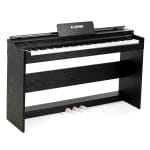
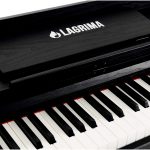
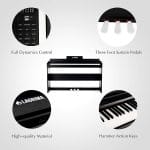
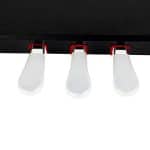
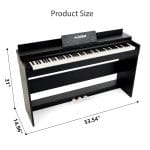
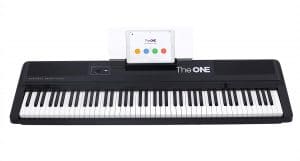
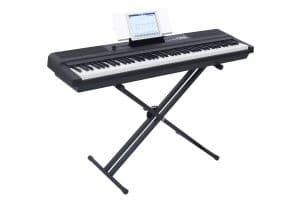
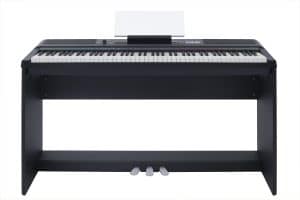
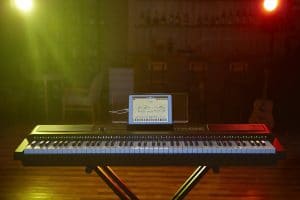
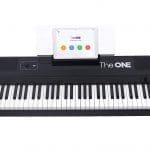
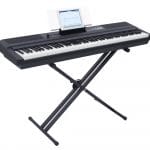
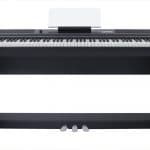
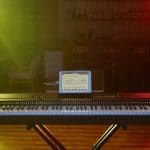
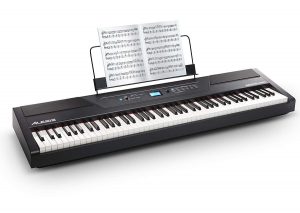
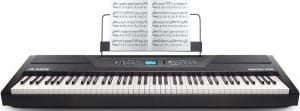
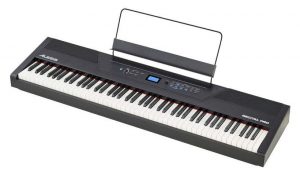
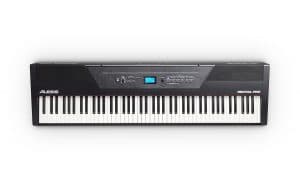
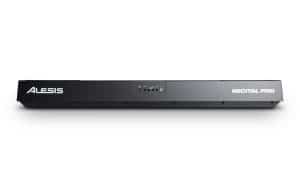
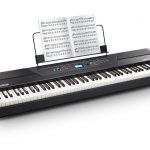
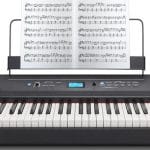
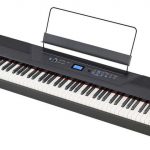
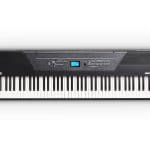
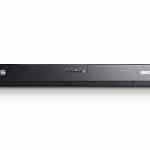
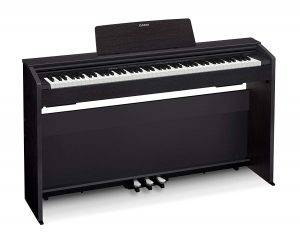
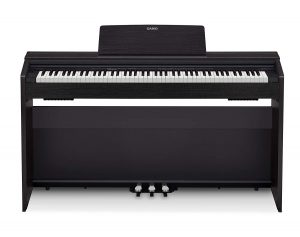
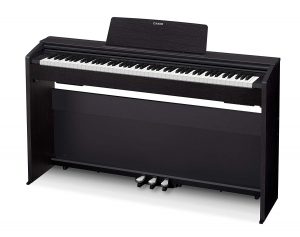
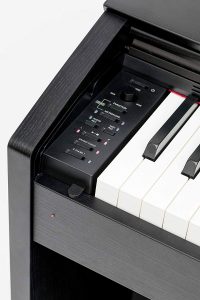
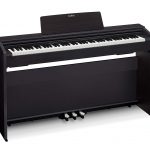
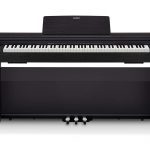
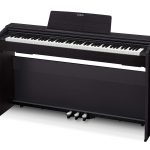
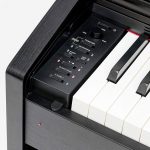
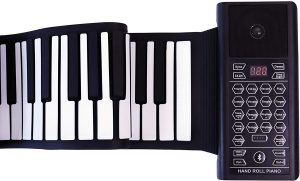
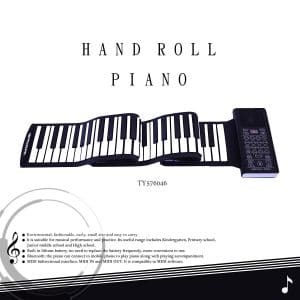
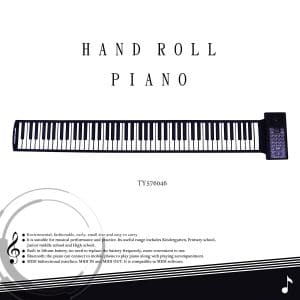
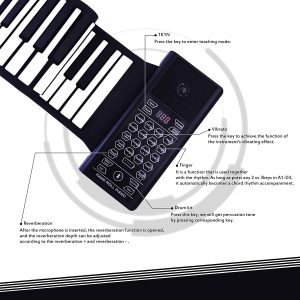
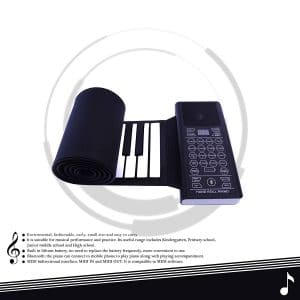
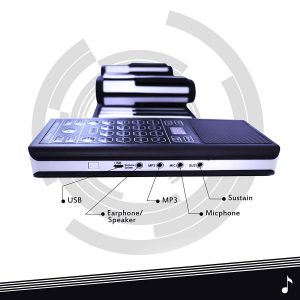
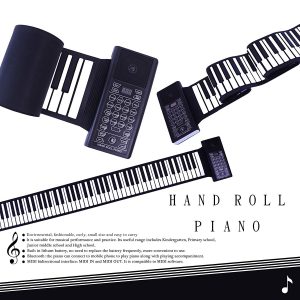
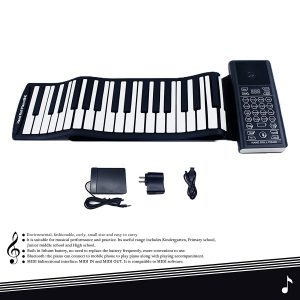
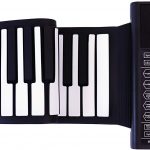
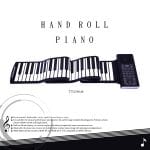
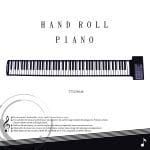
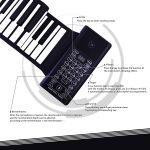
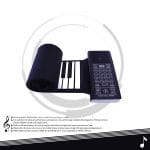
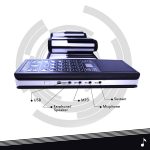
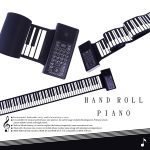
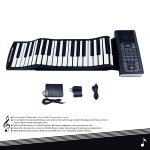
 With this type of key you’ll have more control than what you’ll get from synth keyboards. The improved resistance also leads to a better, more realistic (piano-like) playing experience, although there’s still a lot of room for improvement. This is achieved by brands adding more weights or changing the design of the spring. The keys take longer to return to their original positions then.
With this type of key you’ll have more control than what you’ll get from synth keyboards. The improved resistance also leads to a better, more realistic (piano-like) playing experience, although there’s still a lot of room for improvement. This is achieved by brands adding more weights or changing the design of the spring. The keys take longer to return to their original positions then. The quality of the audio you produce via your 88 key keyboard will relate closely to polyphony of the instrument. A big word that simply refers to how many tones—or notes—your instrument can bring across at the same time. The more the better of course. Lower end models may produce 32, while 64, such as
The quality of the audio you produce via your 88 key keyboard will relate closely to polyphony of the instrument. A big word that simply refers to how many tones—or notes—your instrument can bring across at the same time. The more the better of course. Lower end models may produce 32, while 64, such as  You don’t want the learning curve with your new keyboard to be too long. That can happen if it’s too complicated. That makes the best buy 88 key keyboard one that has an intuitive interface that you’ll quickly grasp, like is
You don’t want the learning curve with your new keyboard to be too long. That can happen if it’s too complicated. That makes the best buy 88 key keyboard one that has an intuitive interface that you’ll quickly grasp, like is 




